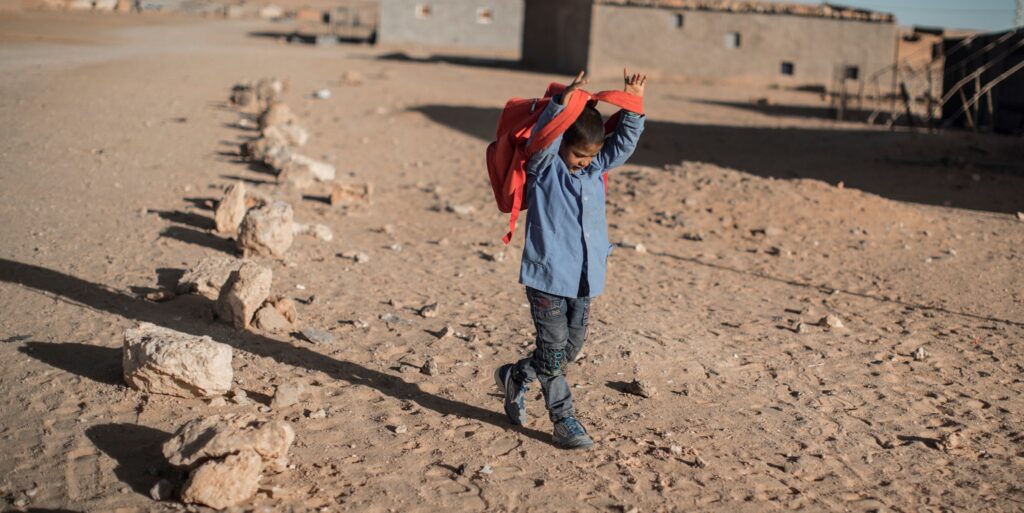Displacement Situation
The Saharawi refugee crisis is one of the most protracted refugee crises in the world. Saharawi refugees were forced to flee their homes in Western Sahara in 1975, when Morocco’s claim over the territory triggered an armed conflict with the Polisario Front, a liberation movement recognized by the United Nations (UN) as the legitimate representative of the Saharawi people.
Since then, 173,600 Saharawi refugees have remained displaced in five refugee camps in the Algerian Sahara Desert. Pending a political solution, the refugee population remains extremely vulnerable and dependent on international assistance for survival, with little access to external resources, and limited opportunities for self-reliance.
Nearly half a century later, the conflict in Western Sahara is still ongoing. It has left landmines and explosive remnants of war scattered across the territory, making it one of the most contaminated in the world and hindering socio-economic development and future returns.
DRC Response
DRC is active in the five refugee camps in southwestern Algeria. Starting in 2016, DRC launched a livelihoods programme with the aim of enhancing the self-reliance and resilience of Saharawi refugees. The programme provides young refugees with start-up business grants, business and technical training, and monitoring and coaching, helping them to strengthen their livelihoods skills and assets and empowering them to sustainably meet their needs and those of their community.
In 2018, DRC expanded its programming to include Explosive Ordnance Risk Education (EORE) in the Saharawi Refugee Camps. This 9-month programme aimed to reduce civilian casualties from landmines and Explosive Remnants of War and improve safe behaviour. In 2019, DRC received funding to undertake a Non-Technical Survey project in Western Sahara, East of the Berm (WS EoB), along with the provision of risk education and community liaison. This project aimed to enable the efficient clearance of the contaminated areas in WS EoB and to enhance the safety of refugees who permanently return or travel to this territory. However, due to the onset of the COVID-19 pandemic and resumption of the conflict in WS EoB in 2020, DRC was unable to operate in this territory and an EORE programme was implemented in the Saharawi refugee camps instead, targeting both the camp population and the population relocated from WS EoB.


